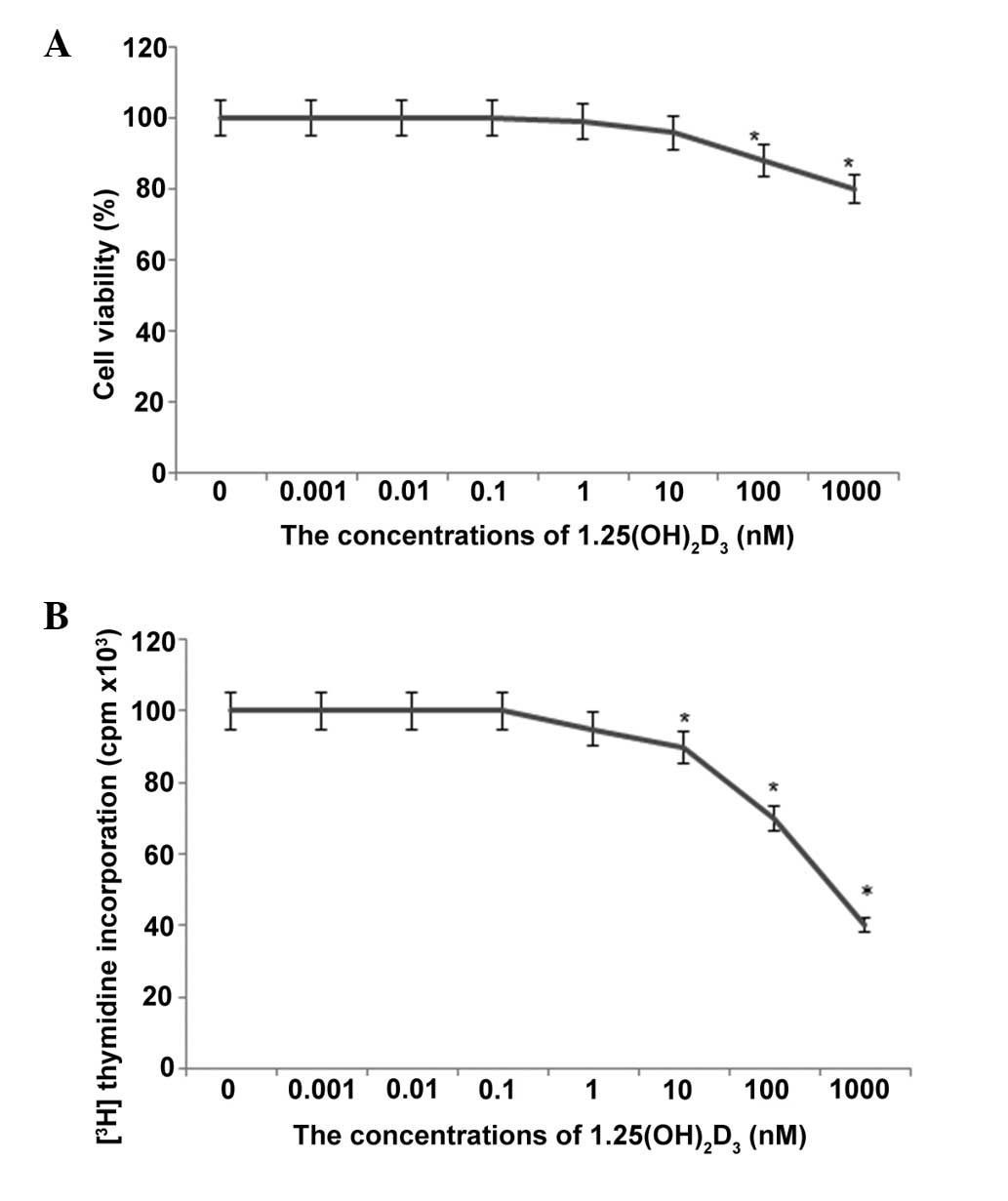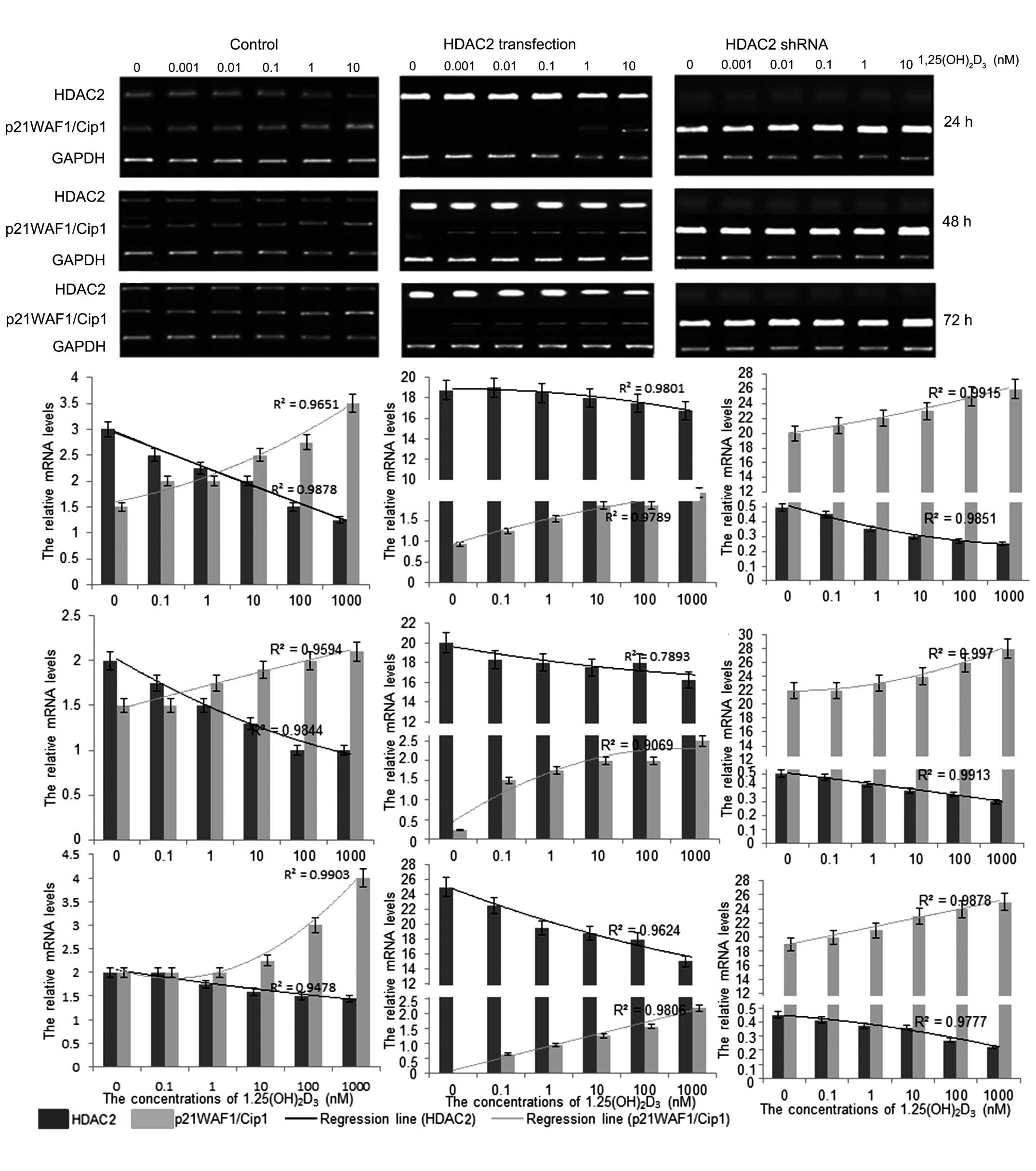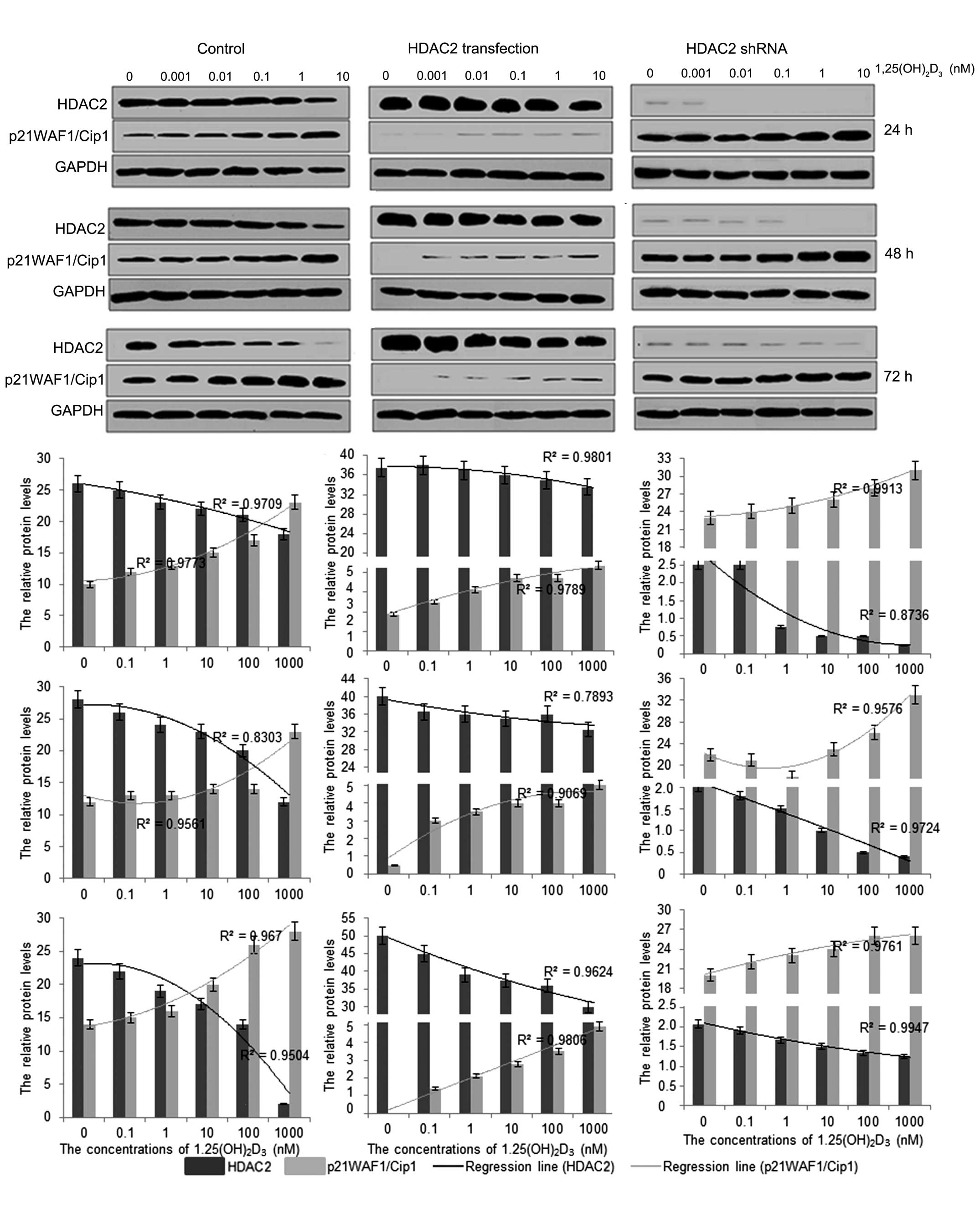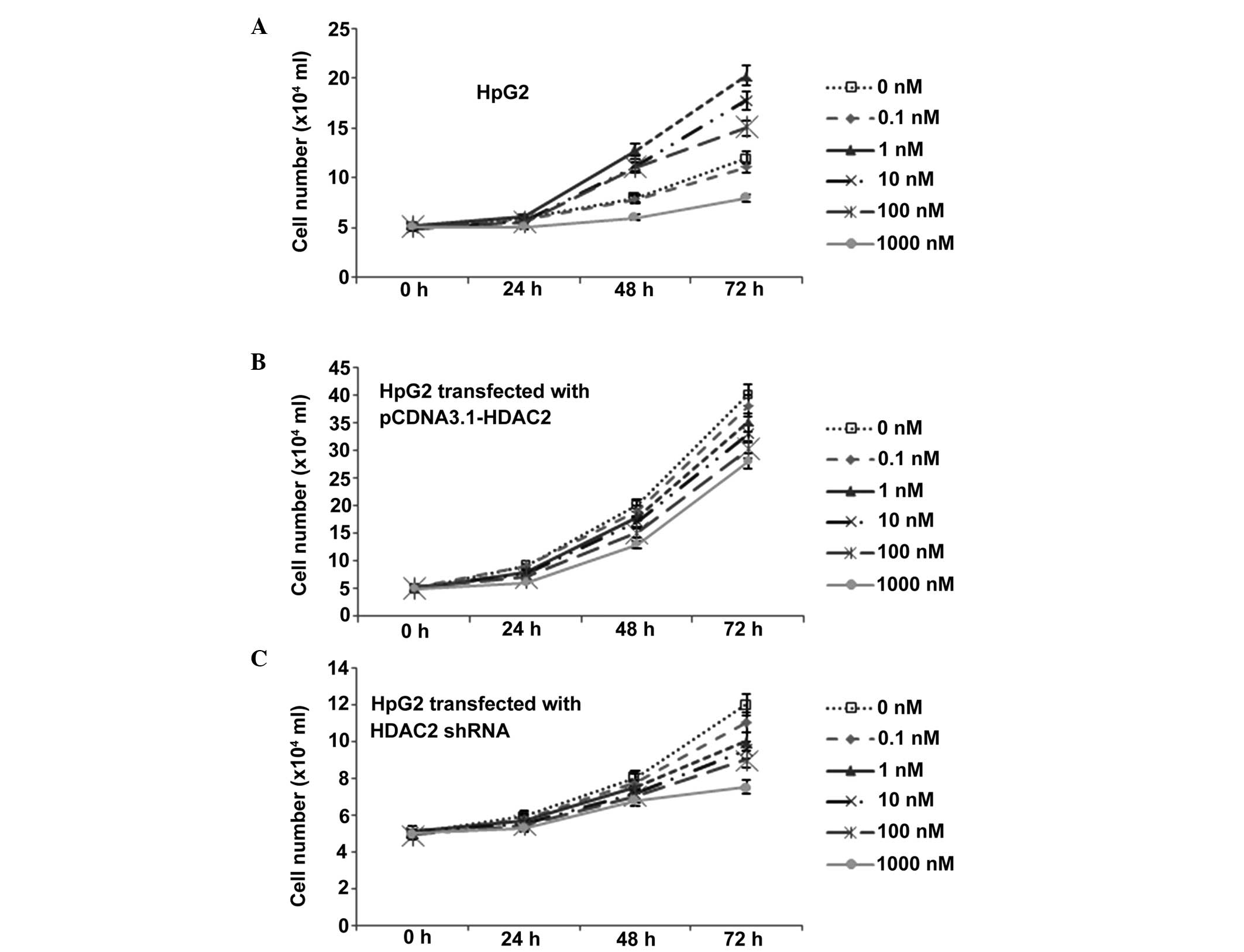|
1
|
Tang B, Zhang Y, Liang R, Gao Z, Sun D and
Wang L: RNAi-mediated EZH2 depletion decreases MDR1 expression and
sensitizes multidrug-resistant hepatocellular carcinoma cells to
chemotherapy. Oncol Rep. 29:1037–1042. 2013.PubMed/NCBI
|
|
2
|
Kirikoshi H, Yoneda M, Mawatari H, Fujita
K, Imajo K, Kato S, Suzuki K, Kobayashi N, Kubota K, Maeda S, et
al: Is hepatic arterial infusion chemotherapy effective treatment
for advanced hepatocellular carcinoma resistant to transarterial
chemoembolization? World J Gastroenterol. 18:1933–1939. 2012.
View Article : Google Scholar : PubMed/NCBI
|
|
3
|
Llovet JM, Bustamante J, Castells A,
Vilana R, Ayuso Mdel C, Sala M, Brú C, Rodés J and Bruix J: Natural
history of untreated nonsurgical hepatocellular carcinoma:
rationale for the design and evaluation of therapeutic trials.
Hepatology. 29:62–67. 1999. View Article : Google Scholar
|
|
4
|
Portolani N, Coniglio A, Ghidoni S,
Giovanelli M, Benetti A, Tiberio GA and Giulini SM: Early and late
recurrence after liver resection for hepatocellular carcinoma:
Prognostic and therapeutic implications. Ann Surg. 243:229–235.
2006. View Article : Google Scholar : PubMed/NCBI
|
|
5
|
Lu L, Sun HC, Zhang W, Chai ZT, Zhu XD,
Kong LQ, Wang WQ, Zhang KZ, Zhang YY, Zhang QB, et al: Aspirin
minimized the pro-metastasis effect of sorafenib and improved
survival by up-regulating HTATIP2 in hepatocellular carcinoma. PLoS
One. 8:e650232013. View Article : Google Scholar : PubMed/NCBI
|
|
6
|
Deeb KK, Trump DL and Johnson CS: Vitamin
D signalling pathways in cancer: Potential for anticancer
therapeutics. Nat Rev Cancer. 7:684–700. 2007. View Article : Google Scholar : PubMed/NCBI
|
|
7
|
Gocek E and Studzinski GP: Vitamin D and
differentiation in cancer. Crit Rev Clin Lab Sci. 46:190–209. 2009.
View Article : Google Scholar : PubMed/NCBI
|
|
8
|
Bhalla AK, Amento EP, Clemens TL, Holick
MF and Krane SM: Specific high-affinity receptors for
1,25-dihydroxyvitamin D3 in human peripheral blood mononuclear
cells: Presence in monocytes and induction in T lymphocytes
following activation. J Clin Endocrinol Metab. 57:1308–1310. 1983.
View Article : Google Scholar : PubMed/NCBI
|
|
9
|
Jung KH, Noh JH, Kim JK, Eun JW, Bae HJ,
Xie HJ, Chang YG, Kim MG, Park H, Lee JY and Nam SW: HDAC2
overexpression confers oncogenic potential to human lung cancer
cells by deregulating expression of apoptosis and cell cycle
proteins. J Cell Biochem. 113:2167–2177. 2012. View Article : Google Scholar : PubMed/NCBI
|
|
10
|
Kim HS, Chang YG, Bae HJ, Eun JW, Shen Q,
Park SJ, Shin WC, Lee EK, Park S, Ahn YM, et al: Oncogenic
potential of CK2α and its regulatory role in EGF-induced HDAC2
expression in human liver cancer. FEBS J. 281:851–861. 2014.
View Article : Google Scholar : PubMed/NCBI
|
|
11
|
Shimizu T, LoRusso PM, Papadopoulos KP,
Patnaik A, Beeram M, Smith LS, Rasco DW, Mays TA, Chambers G, Ma A,
et al: Phase I first-in-human study of CUDC-101, a multitargeted
inhibitor of HDACs, EGFR and HER2 in patients with advanced solid
tumors. Clin Cancer Res. 20:5032–5040. 2014. View Article : Google Scholar : PubMed/NCBI
|
|
12
|
Wang L, Zou X, Berger AD, Twiss C, Peng Y,
Li Y, Chiu J, Guo H, Satagopan J, Wilton A, et al: Increased
expression of histone deacetylaces (HDACs) and inhibition of
prostate cancer growth and invasion by HDAC inhibitor SAHA. Am J
Transl Res. 1:62–71. 2009.PubMed/NCBI
|
|
13
|
Noh JH, Bae HJ, Eun JW, Shen Q, Park SJ,
Kim HS, Nam B, Shin WC, Lee EK, Lee K, et al: HDAC2 provides a
critical support to malignant progression of hepatocellular
carcinoma through feedback control of mTORC1 and AKT. Cancer Res.
74:1728–1738. 2014. View Article : Google Scholar : PubMed/NCBI
|
|
14
|
Noh JH, Jung KH, Kim JK, Eun JW, Bae HJ,
Xie HJ, Chang YG, Kim MG, Park WS, Lee JY and Nam SW: Aberrant
regulation of HDAC2 mediates proliferation of hepatocellular
carcinoma cells by deregulating expression of G1/S cell cycle
proteins. PLoS One. 6:e281032011. View Article : Google Scholar : PubMed/NCBI
|
|
15
|
Parra E, Gutiérrez L and Ferreira J:
Increased expression of p21Waf1/Cip1 and JNK with costimulation of
prostate cancer cell activation by an siRNA Egr-1 inhibitor. Oncol
Rep. 30:911–916. 2013.PubMed/NCBI
|
|
16
|
Sachidanandam R: RNAi: design and
analysis. Current Protocols in Bioinformatics. 13:10–11. 2004.
|
|
17
|
Abe J, Nakano T, Nishii Y, Matsumoto T,
Ogata E and Ikeda K: A Novel Vitamin-D3 Analog,
22-Oxa-1,25-Dihydroxyvitamin-D3, Inhibits the Growth of Human
Breast-Cancer Invitro and Invivo without Causing Hypercalcemia.
Endocrinology. 129:832–837. 1991. View Article : Google Scholar : PubMed/NCBI
|
|
18
|
Giovannucci E: Vitamin D and cancer
incidence in the harvard cohorts. Ann Epidemiol. 19:84–88. 2009.
View Article : Google Scholar
|
|
19
|
Pourgholami MH, Akhter J, Lu Y and Morris
DL: In vitro and in vivo inhibition of liver cancer cells by
1,25-dihydroxyvitamin D3. Cancer Lett. 151:97–102. 2000. View Article : Google Scholar : PubMed/NCBI
|
|
20
|
Methot JL, Hoffman DM, Witter DJ, Stanton
MG, Harrington P, Hamblett C, Siliphaivanh P, Wilson K, Hubbs J,
Heidebrecht R, et al: Delayed and prolonged histone
hyperacetylation with a selective HDAC1/HDAC2 inhibitor. ACS Med
Chem Lett. 5:340–345. 2014. View Article : Google Scholar : PubMed/NCBI
|
|
21
|
Ma P and Schultz RM: Histone deacetylase 2
(HDAC2) regulates chromosome segregation and kinetochore function
via H4K16 deacetylation during oocyte maturation in mouse. PLoS
Genet. 9:e10033772013. View Article : Google Scholar : PubMed/NCBI
|
|
22
|
Di Padova M, Bruno T, De Nicola F, Iezzi
S, D'Angelo C, Gallo R, Nicosia D, Corbi N, Biroccio A, Floridi A,
et al: Che-1 arrests human colon carcinoma cell proliferation by
displacing HDAC1 from the p21WAF1/CIP1 promoter. J Biol Chem.
278:36496–36504. 2003. View Article : Google Scholar : PubMed/NCBI
|
|
23
|
Wang W, Xu L, Kong J, Fan H and Yang P:
Quantitative research of histone H3 acetylation levels of human
hepatocellular carcinoma cells. Bioanalysis. 5:327–339. 2013.
View Article : Google Scholar : PubMed/NCBI
|
|
24
|
Küçükazman M, Ata N, Dal KA, Yeniova AÖ,
Kefeli A, Basyigit S, Aktas B, Akin KO, Ağladıoğlu K, Üre ÖS, et
al: The association of vitamin D deficiency with non-alcoholic
fatty liver disease. Clinics (Sao Paulo). 69:542–546. 2014.
View Article : Google Scholar
|
|
25
|
Mandorfer M, Payer BA, Schwabl P, Steiner
S, Ferlitsch A, Aichelburg MC, Stättermayer AF, Ferenci P,
Obermayer-Pietsch B, Grabmeier-Pfistershammer K, et al: Revisiting
liver disease progression in HIV/HCV-coinfected patients: The
influence of vitamin D, insulin resistance, immune status, IL28B
and PNPLA3. Liver Int. 35:876–885. 2014. View Article : Google Scholar : PubMed/NCBI
|


















